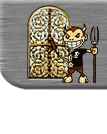





 |
 |
 |
||
 |
 |
 |
||
| |
|
|
|
|
| Home : Psychodynamic Module : Tools | ||||||||||||||||||||||||
Tools of Freud
Let's do a little surfing. Each of these gives a brief definition, but it is also provides links to sites that discuss these tools. RelaxationRelaxation is a way of moving from high alert to a calmer and quieter state. It can be done with imagery, self thought, exercise. You have control over your state, but you will need to remember to check how you are feeling. You did not come with a gauge. Defense MechanismsWhen things are not going well, we want to protect ourselves. Sometimes the protection is intentional and conscious, but sometimes it springs from internal needs and energy. There are many defenses that we use.
Self AwarenessSelf awareness is possible because of ego development. Many animals are not self aware. Children do not begin to recognize a self until about 18 months of age. This is a very complex concept, wrapped in ability to choose right from wrong, to understand and care about the needs of others, and to distinguish who we are and what we believe. It appears to be something that distinguishes a sentient being. Self ControlWe have many emotions. They can be triggered by cognitive and environmental occurrences. We can also trigger past experiences that color the way we feel about a current happening. Being human, we can learn to recognize and control the way we feel. In teaching, this is particularly important. You may have had poor school experiences, yet you can determine how you will respond to students. You need not do things you did not value from your own experiences with teachers. You can change the way you respond today, regardless of the ways you responded in the past. You have the ability and the right to control yourself. You also have the responsibility, as a teacher, to support that kind of emotional discipline and maturity with your students. Self discipline and study skills Emotion ManagementWe do not come with gauges, like we can find on our car -- in fact, we do not even have what used to be called idiot lights - something to let us know that we are about to boil over. In teaching, if you can control your emotions, know how you feel and why you are upset, what students may be doing that you find difficult to handle, you will have the most critical tools to having a peaceful and positive learning community. Level of TrustThis refers to the ideas discussed by Erik Erikson. He notes that the first ego task is to determine trust or mistrust. It is likely that this is the first task in any relationship, throughout life. How do you feel about students? Do you tend to question the things they do to help them or because you feel they may be intending to break rules, to cheat, to lie? Your level of trust may say more about what you believe than it does about what your students believe. Intentions, motivations, expectations -- all come from our trust level. As we discuss intentions, ask yourself this: Do you believe that most people are basically good, that we do the best we can, that all things considered, people want to do the right thing? What do you believe about children, about learning, about yourself? Erikson bio Once you have completed this topic you should: Go back to Tools
|
||||||||||||||||||||||||
| E-mail J'Anne Ellsworth at Janne.Ellsworth@nau.edu | ||||||||||||||||||||||||
|
Course Created by J'Anne Ellsworth & Center for Technology Enhanced Learning Copyright
© 2001 Northern Arizona University |
 |
 |
 |
 |
 |
|